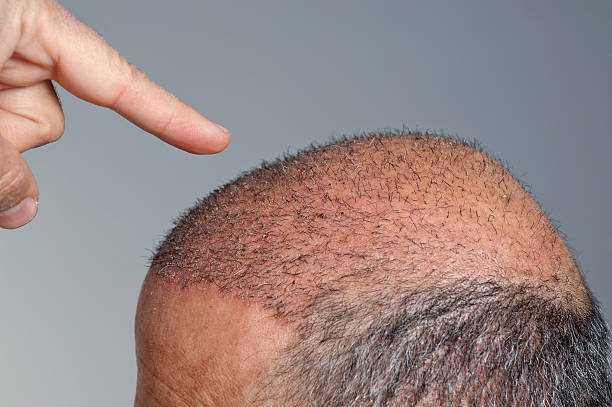Scalp Psoriasis: Early Signs You Shouldn’t Ignore
Scalp psoriasis is a chronic skin condition that causes red, scaly patches on the scalp, leading to discomfort and itching. While it’s not contagious, it can significantly affect quality of life if left unmanaged. Early recognition of the symptoms and understanding how to care for the scalp can help reduce flare-ups and improve overall scalp health. Knowing the key signs is essential for timely treatment and relief.

What are the typical symptoms of scalp psoriasis?
Scalp psoriasis presents with several distinctive symptoms that set it apart from other scalp conditions. The most common signs include:
-
Red, raised, inflamed areas on the scalp
-
Silvery-white scales that may flake off
-
Intense itching, which can lead to scratching and further irritation
-
Dry scalp that may crack or bleed
-
Hair loss in severe cases, although this is usually temporary
These symptoms can range from mild to severe and may extend beyond the hairline to the forehead, back of the neck, or behind the ears. It’s important to note that scalp psoriasis can be mistaken for dandruff, but the scales are typically thicker and more adherent to the scalp.
How does scalp psoriasis differ from other common scalp conditions?
While scalp psoriasis shares some similarities with other scalp conditions, there are key differences that help in its identification:
-
Dandruff: Unlike scalp psoriasis, dandruff produces fine, loose, white or yellowish flakes without the inflammation or redness associated with psoriasis.
-
Seborrheic dermatitis: This condition causes oily, yellow scales and can affect other areas of the body. Scalp psoriasis scales tend to be drier and silvery-white.
-
Ringworm: A fungal infection that creates circular, red patches with a clear center, often accompanied by hair loss. Scalp psoriasis doesn’t follow this pattern.
-
Eczema: While both conditions cause itching, eczema typically results in small, intensely itchy blisters, whereas psoriasis produces thicker, scaly patches.
Understanding these differences can help in seeking the right treatment and avoiding misdiagnosis.
Why is it important to monitor itching and inflammation in scalp psoriasis?
Monitoring itching and inflammation in scalp psoriasis is crucial for several reasons:
-
Prevention of complications: Excessive scratching can lead to skin damage, infections, and temporary hair loss.
-
Assessing treatment effectiveness: Changes in itching and inflammation levels can indicate whether current treatments are working or need adjustment.
-
Early detection of flare-ups: Increased itching or inflammation may signal the onset of a flare-up, allowing for prompt intervention.
-
Quality of life impact: Persistent itching and inflammation can significantly affect sleep, concentration, and overall well-being.
-
Trigger identification: Keeping track of these symptoms can help identify potential triggers, such as stress or certain hair products.
By closely monitoring these symptoms, individuals with scalp psoriasis can work with their healthcare providers to optimize treatment plans and minimize the condition’s impact on daily life.
How can scalp psoriasis impact daily life and self-esteem?
Scalp psoriasis can have a profound effect on an individual’s daily life and self-esteem:
-
Social anxiety: Visible flakes or redness may cause embarrassment and social withdrawal.
-
Clothing choices: People may avoid dark-colored clothing to hide flaking.
-
Hairstyling limitations: Certain hairstyles or hair treatments may be off-limits due to scalp sensitivity or visibility of patches.
-
Time-consuming care routines: Managing symptoms often requires additional time for treatments and scalp care.
-
Emotional stress: The chronic nature of the condition can lead to frustration, depression, or anxiety.
-
Work-related challenges: Severe itching or visible symptoms may affect concentration and professional interactions.
-
Intimacy issues: Scalp psoriasis can impact confidence in close relationships.
Addressing these impacts is an essential part of comprehensive psoriasis management, often requiring both medical treatment and psychological support.
What treatment options are available to manage scalp psoriasis effectively?
Effective management of scalp psoriasis typically involves a combination of treatments:
-
Topical treatments:
-
Corticosteroids to reduce inflammation
-
Vitamin D analogues to slow skin cell growth
-
Salicylic acid to soften and remove scales
-
Coal tar to reduce inflammation and slow skin cell growth
-
-
Systemic medications:
- Oral or injectable drugs for severe cases, such as methotrexate or biologics
-
Light therapy:
- Controlled exposure to UV light to slow skin cell turnover
-
Medicated shampoos:
- Containing ingredients like coal tar or salicylic acid
-
Lifestyle modifications:
-
Stress reduction techniques
-
Dietary changes to identify and avoid potential triggers
-
-
Alternative therapies:
- Aloe vera, tea tree oil, or other natural remedies (consult with a healthcare provider before use)
Treatment effectiveness can vary among individuals, and a combination of approaches may be necessary for optimal management. Regular follow-ups with a dermatologist are essential for adjusting treatment plans as needed.
Scalp psoriasis, while challenging, can be effectively managed with early recognition and appropriate care. By understanding the symptoms, differentiating it from other conditions, and seeking timely treatment, individuals can minimize its impact on their daily lives and maintain better scalp health. Remember that psoriasis is a chronic condition, and patience is key in finding the right combination of treatments for long-term management.
This article is for informational purposes only and should not be considered medical advice. Please consult a qualified healthcare professional for personalized guidance and treatment.




